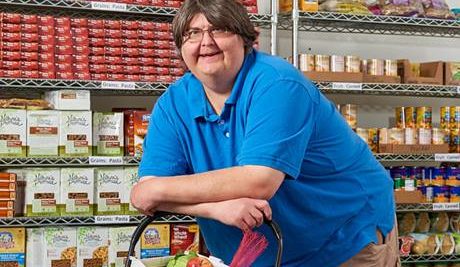It’s a grocery store—and much more
Tom Shicowich felt powerless to reclaim his life from the type 2 diabetes that seemed to have taken over. He was more than 100 pounds overweight and on a tight budget due to $200,000 in medical bills incurred from diabetes-related complications. At his local grocery store, all he could afford “was canned ravioli or a Hungry Man meal to keep my belly full.”
Shicowich was not alone. Lack of access to decent food—one of the hallmarks of poverty in the U.S.—increases the chance of developing type 2 by as much as 26 percent. Today, one in ten Americans has diabetes, and if current trends continue, as many as one in three could have it by 2050. Luckily, Shicowich found Geisinger Health System’s Fresh Food Farmacy, an innovative program supported by the McGowan Fund. The surprise: The Farmacy is essentially a grocery store, backed by patient education and treatment.
Allison Hess, vice president of health innovation at Geisinger, says managing diabetes beyond the doctor’s office is challenging. Recent studies show that the places people live, work, and play have a big effect on a wide range of health risks and outcomes.
Coordinating with community-based organizations like food banks, Geisinger can extend care past the clinical setting and into patients’ day-to-day lives.
The program enrolls diabetes patients who are food insecure and have HbA1c levels greater than eight. They work with a physician at one of the three Fresh Food Farmacy locations serving more than 200 patients and their families in Northeast Pennsylvania. Also included: care management, diabetes education, regular consultations with dietitians and pharmacists, and of course access to good groceries. “We can give all the education and all the services in the world, but if we’re sending our patients back into a situation where they can’t provide … healthy, nutritious food for themselves, then we’re never going to get their diabetes controlled because it’s a diet-responsive condition,” Hess says.
The results are remarkable. Geisinger has seen major improvements in blood sugar, HbA1c, cholesterol, and blood pressure control, and the program has done wonders for Shicowich. Within six months of joining, he lost more than 45 pounds and cut his HbA1c level from 11 to a normal level of 6–7. Today, he and his girlfriend cook fresh, healthy meals at home. It’s much easier for him to climb a flight of stairs. And he has a new job: He works for the Farmacy, which, he says, has changed his life.

